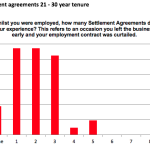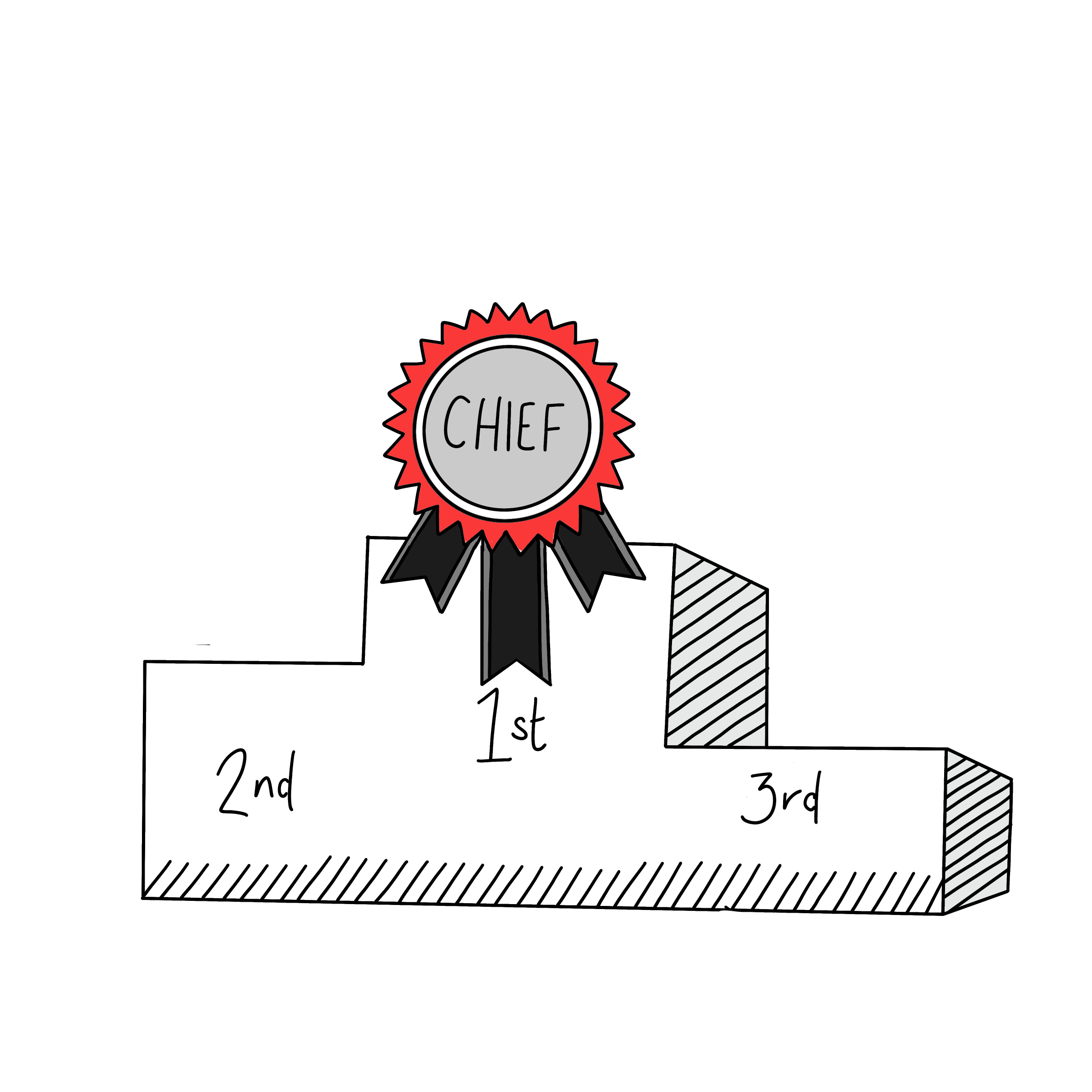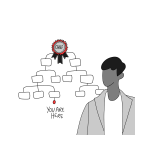The Marketing Academy Fellows Retreat this year focused on The Bleeding Edge of Marketing, Leadership and Organisation. Speakers ranged from McKinsey Partners to global Influencers/Creators, ESG advisers, Artificial Intelligence experts and leadership coaches. The summary below is split into 5 different areas and includes points made across a number of contributors (listed).
Top 10 Take Outs
- Don’t chase success, but think about your wider significance. What do you want your epitaph to be and if you died tomorrow, how close are you to achieving?
- Ground yourself in the present. Thoughts and feelings are not real. Name and control your internal voices. They all have positive intent, but don’t let them take over.
- Check your priorities (status, work, money vs love, family, purpose) and don’t regret your choices. Be the change you want to see. Consider how you make people feel.
- Think about the effect 1% marginal gain could achieve if everyone in your organisation did this. How do you get everyone onboard? Fix the process and results will follow.
- Marketing needs to earn trust and credibility. Get some early wins, show investment works and have an open book of the performance. Align and win with other teams.
- Brands need to be less controlling and take more risks with creator-influencer channels. Find an authentic brand voice and employ creators internally.
- Create a happy company with a strong purpose, clear values and an inspiring leader. Happiness is more important than salary. Talk often about values and purpose.
- There are more FTSE CEOs called David than female CEOs. How well embedded is diversity and inclusion in your organisation?
- ESG change starts with organisational purpose and looking beyond financial performance. It can’t be changed by marketing alone. Doing nothing is not an option.
- AI will influence 60-70% of all jobs in next 10 years. There are ethical and moral questions, and threats “ The nation that leads in AI will be the ruler of the world” Putin
Personal Growth Notes
Find success with significance. Many people chase finding success for many years. They then realise what is important is significance and start to chase this. Why not find success with significance from the start?
Think what is your significance? What is the point of you? What is your purpose? How do you let people feel they are in the best job ever?
What will be your epitaph if you died? If you dropped down dead today, how far are you from it?
Contextualise the future. Write a letter from your future self to your present self. What are you doing now in the future? How are you behaving? How did you make it happen?
If I die today, what have I achieved? How much money do you really need? Why are you not doing what you love?
*
‘I’ve learnt that people will forget what you said, people will forget what you did, but people will never forget have you made them feel’. Maya Angelou (author civil rights campaigner)
Have you got your priorities right? Status, work, money vs love, family, purpose.
Many are chasing success, but they never get there. They always want the bigger car, bigger house and are never happy.
Think about what is driving your choices. Try to ground yourself in the present. Thoughts and feelings do not exist and try to control your internal voices. Let these voice be characters: Negative Ninny, Kick Arse, People Pleaser, Risk Manager. All have positive intent but don’t let them take over – learn to ‘pass the mic’ to another voice to control them.
Think about your total wellbeing – physical (exercise), mental (mental health, sleep), emotional (choose your mood each day), contextual (who gives you energy – stick with them), tactical (day to day tasks), technical (learning and development). Don’t let tactical win.
Do vision boards and picture the future. Be the change you want to see.
Find power in your vulnerability. People don’t trust leaders who aren’t vulnerable. Be human.
*
If you are doing a start-up find something that is a personal project (reached rock bottom on personal health). Researched healthy eating and taught herself to cook. Her initiative was relevant to others - 150m visits year1.
Marketing Effectiveness Notes
The obsession for making marginal 1% gains in a multitude of areas is the fine line between winning and losing. Focus on the process and the results will take care of themselves.
Find the bigger thought that is relevant to a wider audience and be prepared to hold your course against other forces.
We may think people revert to the status quo, but simple and relevant messaging can change their thinking (Brexit).
‘We exist to win’ was the McLaren mantra, but if you didn’t win what are you and McLaren hadn’t won for years. Pivoted to ‘The fearless pursuit of better’ and marginal gains.
*
Both Marketing and Tech need to understand each other better. Cut through the fluff, work collaboratively and succeed together. Internal business reviews connected product, IT and marketing bits together.
Everyone needs to understand the company narrative and purpose and apply to their role. Executive team need to understand the customer and are updated monthly.
Marketing needed to get some early wins, show investment works and have an open book of the numbers, so they are credible and trusted by other teams.
*
Live TV needs 100% commitment to an idea to keep an audience.
Treat the audience with respect and recognise humanity. People are less interested in the dancing in Strictly, but more the background story and seeing the celebs out of context. Audiences need to feel it.
TV shows need predictability. Need to take the audience on a journey - start, middle and end.
New Marketing Channels (Influencers) Notes
Brands need to trust influencers/creators more. Influencers know the platform algorithms and what spikes interest. Brand content often underperforms because they have been too controlling. Important to have a long-term approach – see what works and what doesn’t (be prepared to mess up early on), listen to what people say and reply to them, have a genuine and authentic voice (e.g. Ryan Air, Morning Brew, Duolingo). Influencers/creators are producing content at scale that traditional agencies can’t achieve.
*
Three tiers of influencers: 1. Upper class ($15m+ pa – Mr Beast, Sidemen etc) 2. Middle class ($250-500k pa) 3. Working class (<$100k pa)
Upper class are just going to get bigger. They created their scale before mass creativity became available on platforms like Tik Tok etc. Nowadays people are following videos rather than following brands/people. Sidemen profiles are deep and authentic – celebs in traditional media like TV don’t have the same authority, as they don’t have this depth/honesty.
Very hard to make a living in tier 3 – 1m followers will not drive much ad revenue. Tier 3 is the opportunity for brands – split $50k amongst 50 influencers and see what goes viral instead of $50k on one influencer.
No reason for brands not to have their own creators in their businesses. Look at Ryan Air or Duolingo on Tik Tok.
Organisation Performance Notes
Top 9% of companies are growing people and performance: high profit, high resilience, low attrition, multi-dimensional wins. Key people drivers: 1. Clear top down vision 2. Defined goals. 3. External orientation. 4. Empowerment. 5. Widespread ownership. 6. Company wide innovation. 7. Inclusive work. 8. Transparency . 9. Entrepreneurship and initiative taking. 10. On the job coaching.
Hybrid works best when teams are empowered to make the decision on when they co-locate.
People are prepared to take a 12% salary cut to join a happier, more purposeful company. (Glassdoor survey).
Highest performance employees are x8 more productive. Need to pinpoint these individual and pay them well.
There are more FTSE CEOs called David than female CEOs.
Business leaders need to be more inspiring – only 25% survey respondents say their organisation has an engaged and inspiring leader.
*
Give people a clear mission and purpose and the freedom to operate within boundaries.
British army use ‘The 7 question estimate’ before anyone put into harm : What is the situation and how does it affect me? What have I been told to do and why? What effects do I need to achieve and what direction must I give to develop my plan? Where can I best accomplish each action or effect? What resources do I need to accomplish each action or effect? When and where do these actions take place in relation to each other? What control measures do I need to impose?
No team can hold up a process more than any other team. If three teams involved each has 1/3 of the time available.
British Army values: Courage, Selflessness, Discipline, Commitment, Integrity and Respect. The values are discussed every week and applied to situations that may occur.
The leader/officer is always at the start and close of any action that takes place. After action reviews are a key process for everyone. Makes people humble, drives honesty and learning. Officer demonstrate selflessness value in combat – always lead their troops into combat which is why more officer are killed/injured than any other rank.
*
In order to drive an ESG agenda you need to go back to the business purpose and values. You need the business to look beyond profit. It needs to be something that the whole leadership team buy into and can’t just be a marketing initiative (e.g. M&S Plan B). Get it into the objectives and become mission driven. If the leadership team cannot look beyond financial growth it will fail, but doing nothing is NOT an option.
First step is carry out a materiality assessment, so you identify the most important issues.
Often easier to develop ESG agenda in start-ups and build new assets e.g. Octopus Energy disrupting using new assets in windfarms.
Greenhushing as bad as Greenwashing. Many companies just going quiet and saying nothing, but legislation is coming, and they will need to act.
ESG changes will cost more. Need to educate consumers about why this is the case. Be transparent and honest – look at Greg Jackson, CEO Octopus.
Data and Technology Notes
AI, Generative AI (e.g. Chat GBT), Machine learning: 60-70% of jobs will change or be affected in next 10 years. AI estimated to be the same as the human brain by 2031.
AI gets the answer right 80% of the time. It is a good baseline but need to add human touch.
Need to think about how AI can be applied: change in automation, customer experience, optimization, service operations, customer segmentation and acquisition.
Opportunity for advanced CRM built upon deep personas with different tone/visuals for each. Need to introduce guardrails to prevent incorrect words e.g. hello lovely lady.
*
Multiple backgrounds are created in seconds using AI (e.g. Coke and Amazon backgrounds). Ethical concerns over copying someone style.
Customisable video can be created. Core content can be the same but opening frames (e.g. person’s name) can be AI generated onto the spokesperson.
There is a divergence in AI governance. US/UK/Japan vs EU/China.
*
“The nation that leads in AI will be the ruler of the world” Putin
Evolution of data: Data (1-0 symbols) > Information (symbols in context e.g. DOB) > knowledge (start making predictions) > understanding (why this happens) > wisdom
6 applications of AI: 1. Task (if, then macros) 2. Content generation (images, video, text) 3. Human representation (deep fake) 4. Insight extraction (machine learning, data science) 5. Decision making (decision trees_ 6. Human augmentation (avatars, people profiling, cybermetrics)
AI can help predict risk e.g. loan default through links to gambling sights or inaccuracies filling in application form (high correlation with intoxication).
Useful to create digital twin of retail stores or supply chains. Can optimise and reduce costs.
Models have been produced for workforce allocation and achieved 12.5% efficiency gains. Need to be careful on the KPI as the saving can have a knock on effect elsewhere.
Contributors:
Daniel Hulme, WPP
Hannah St Paul, Snap
Mark Evans, Sherilyn Shackell and Scholars, The Marketing Academy
Emma Harris, Glow
Ella Mills, Deliciously Ella
Henry Chilcott, Formula E
Pete Markey & Jennifer Duffy, Boots
Izzie Pick Ibarra, ex. BBC and Apple TV
Ben Jeffries, Casper Lee, John Gregory-Smith, BrandonB, Sherice Banton (various influencers)
Jordan Schwarzenberger, Creator Inc
Barbara Jeffery, McKinsey
Justin Maciejewski DSO MBE, ex.British Army & National Army Museum
Andrea Hartley, Skating Pandas
Richard Lawrence, New England Seafood
Lukasz Michalak, Octopus Investments
Ruben Schaubroeck, Mckinsey
Max Sinclair, Ecomtent















